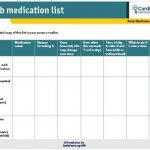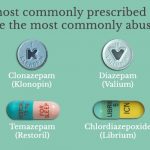Contents
Menopause Diet: Foods to Eat & Foods to Avoid
Menopause is a natural process in women when menstruation ceases for 12 months. It causes a gradual decline in female reproductive hormones, which may be linked to unpleasant symptoms and an increase in the risk of certain diseases.
Symptoms of menopause include:
Dietary changes may ease the transition and reduce symptoms.
It is essential to follow a proper diet throughout life. However, during menopause, extra care is required due to decreased levels of reproductive hormones such as estrogen and progesterone, which may result in changes in metabolism and decreased bone mineral density, leading to arthritis in women.
Therefore, it is essential to add calcium and protein-rich foods, vegetables, and fruits to the diet to help women relieve menopausal symptoms.
To ease symptoms, a few dietary and lifestyle changes are required.
7 foods recommended during menopause
Doctors advise consuming the following foods during menopause:
- Calcium-rich foods: Bone loss is mainly seen during menopause, leading to osteoporosis due to decreased estrogen levels. Therefore, it is essential to eat calcium-rich foods, such as two to three glasses of milk daily and other dairy products rich in calcium. Fish like sardine and salmon are rich in calcium. Consume 1,200 to 1,500 mg of calcium daily.
- Dairy products rich in calcium include:
- Cow’s milk
- Soy milk
- Yogurt
- Low-fat cheese
- Vegetables: Green leafy vegetables help manage weight and maintain bone density. Add at least two cups of vegetables to your diet. Veggies like spinach, collard greens, and turnips are rich in calcium.
- Other vegetables rich in calcium include:
- Kale
- Broccoli
- Asparagus
- Cauliflower
- Brussel sprouts
- Sage
- Lean protein: Consuming an adequate amount of protein is essential to relieve menopausal symptoms and maintain weight and muscle mass. Protein is abundant in lean meats.
- The following foods are rich in lean proteins:
- Tuna
- Tofu
- Grilled chicken
- Lean beef
- Beans
- Lentils
- Turkey
- You can occasionally add red meat to your diet, but be cautious of the cholesterol content.
- Soy products: Soy products are good sources of phytoestrogen, which helps reduce menopausal symptoms. However, not all soy-based products have the enzyme that converts phytoestrogens to estrogens. Some soy products may trigger hot flashes and night sweats in some women.
- Some soy-based products include:
- Tofu
- Soybeans
- Soy flour
- Soy milk
- Iron-containing foods: Daily recommended dietary allowance of iron in menopausal women is 8 mg per day. Therefore, consume at least three servings of iron-rich foods per day.
- Rich sources of iron include:
- Red meat
- Chicken
- Fish
- Green leafy vegetables
- Nuts
- Whole grains
- Fiber-containing foods: Most older people require at least 21 grams of fiber in their daily diet.
- Fiber-rich foods include:
- Whole grains
- Rice
- Bread
- Pasta
- Cereals
- Fresh fruits
- Vegetables
- Water: All older adults should drink a minimum of eight glasses of water daily. This meets all the nutritional requirements of older adults.
QUESTION
Which foods must be avoided during menopause?
Some foods may worsen menopausal symptoms and should be avoided, such as:
- Processed foods: Avoid all processed foods like chips and cookies, as they contain sodium and added sugar that can cause bloating. Look for healthy alternatives to control cravings.
- Spicy foods: Try to avoid spicy foods, as they may trigger hot flashes, excessive sweating, and flushing in menopausal women.
- Junk foods: Junk foods increase the risk of heart disease, which menopausal women are already at high risk for. Avoiding these unhealthy foods is important to prevent weight gain and worsening of menopausal symptoms.
- Alcohol and caffeine: Limit alcohol intake to one glass per day or less. Consuming excessive alcohol may increase the risk of breast cancer and worsen menopausal symptoms. Caffeine can also increase the likelihood of hot flashes. If you crave hot caffeinated drinks, try alternatives like green tea, peppermint tea, and caffeine-free beverages.
Supplements to take during menopause
Some women who are lactose intolerant may need to take calcium pills as a supplement. Sage leaf supplements have been reported to improve hot flashes in some women.
Additionally, taking vitamin D pills is essential as vitamin D helps increase calcium absorption and maintain healthy bones.
Always consult your physician before taking any supplements.
What changes occur during menopause?
Menopause is the biological process that usually occurs in women between 45 and 50 years of age, although it can occur earlier or later. Menopause is confirmed after a complete cessation of periods for 12 months.
During menopause, the ovaries stop producing eggs, resulting in decreased production of estrogen and progesterone, which can alter metabolism and cause menopausal symptoms such as:
- Hot flashes: Hot flashes are the most common and early symptom of menopause, affecting about 75 percent of women. They involve sudden increases in body temperature and may cause increased heart rate and palpitations. Hot flashes can also occur at night, leading to severe sweating and sleep disturbances.
- Vaginal atrophy: Vaginal dryness and thinning of the vaginal lining are common during menopause, leading to vaginitis and urinary tract infections. Vaginal dryness can also cause painful sex and vaginal bruising.
- Relaxed pelvic muscles: Menopause can cause relaxed pelvic muscles, increasing the risk of urinary incontinence and uterus or bladder prolapse.


